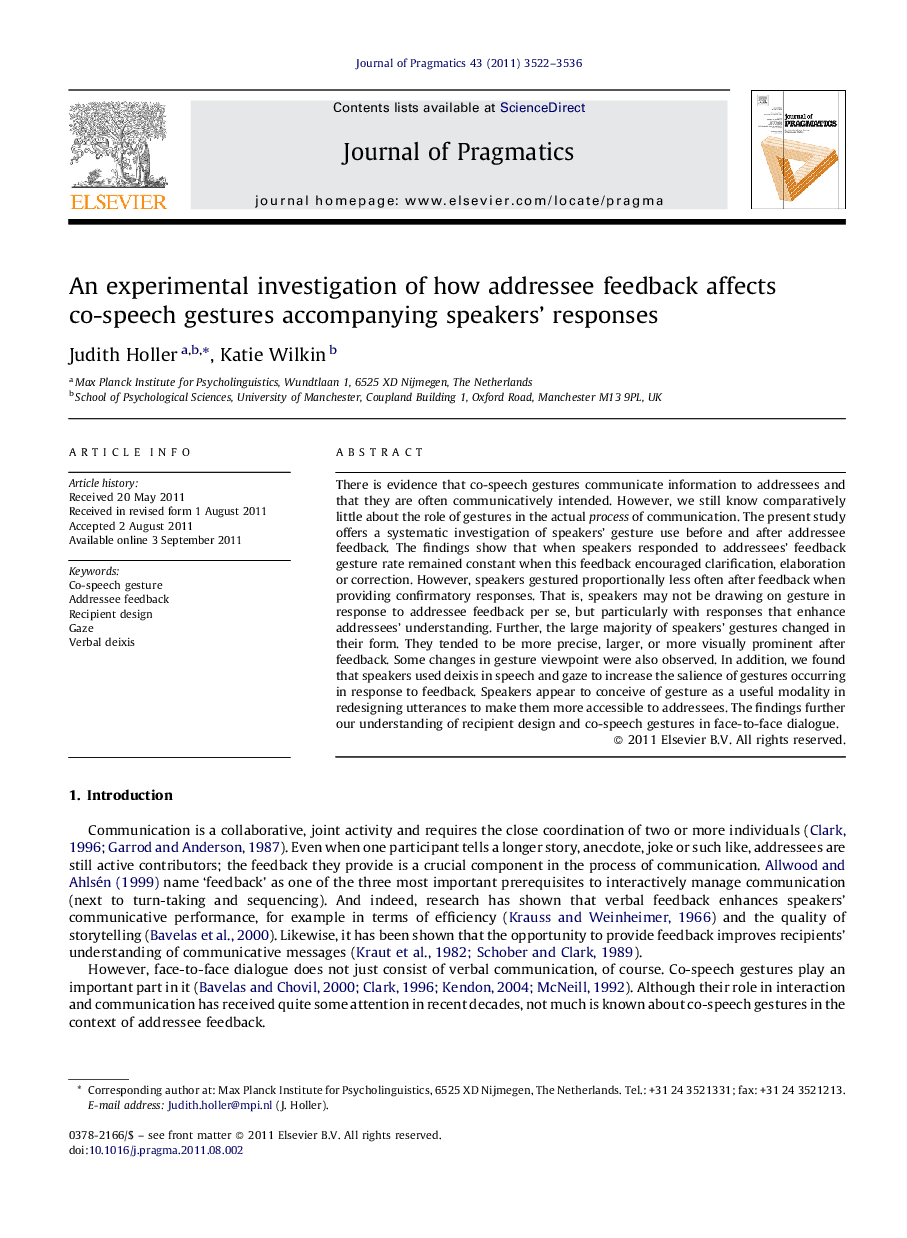| Article ID | Journal | Published Year | Pages | File Type |
|---|---|---|---|---|
| 933115 | Journal of Pragmatics | 2011 | 15 Pages |
There is evidence that co-speech gestures communicate information to addressees and that they are often communicatively intended. However, we still know comparatively little about the role of gestures in the actual process of communication. The present study offers a systematic investigation of speakers’ gesture use before and after addressee feedback. The findings show that when speakers responded to addressees’ feedback gesture rate remained constant when this feedback encouraged clarification, elaboration or correction. However, speakers gestured proportionally less often after feedback when providing confirmatory responses. That is, speakers may not be drawing on gesture in response to addressee feedback per se, but particularly with responses that enhance addressees’ understanding. Further, the large majority of speakers’ gestures changed in their form. They tended to be more precise, larger, or more visually prominent after feedback. Some changes in gesture viewpoint were also observed. In addition, we found that speakers used deixis in speech and gaze to increase the salience of gestures occurring in response to feedback. Speakers appear to conceive of gesture as a useful modality in redesigning utterances to make them more accessible to addressees. The findings further our understanding of recipient design and co-speech gestures in face-to-face dialogue.
► Gesture rate remains constant in response to addressee feedback when the response aims to correct or clarify understanding. ► But gesture rate decreases when speakers provide confirmatory responses to feedback signalling correct understanding. ► Gestures are more communicative in response to addressee feedback, particularly in terms of precision, size and visual prominence. ► Speakers make gestures in response to addressee feedback more salient by using deictic markers in speech and gaze.
